- Home
- George R. R. Martin
Old Venus Page 13
Old Venus Read online
Page 13
A shiver passed through. This news was not good. In his salad days, before Marilyn had hove into view and taken him in tow, Baldie could have posed for a likeness of monomania. The realization that he was here on his own, and with newts in the picture, boded ill. I sat down again at the breakfast table and lit a meditative cigarette, blew out a peal of smoke, and said, “Out with it, Slithy. The full chronicle.”
I won’t reproduce his exact words, nor the several questions I had to put to elicit them. Conversation was never Slithy Tove-Whippley’s métier; he got by mostly on grunts and monosyllables. But the story that we together unfolded revealed that Baldie, after a lifetime of newt studies, had come to the melancholy conclusion that the field would henceforth offer him no new worlds to conquer. He had exhausted all that newts could offer him, and the realization caused him to fall into the aforementioned s of d.
But then he had read in the papers of the emergent craze for rocketing off to Mars and Venus. The former did not interest him, being a dry place; but the descriptions he read of the planet named for the goddess of love—its vast swamps, its rain-sodden jungles, its mosses and lichens—could not help but to ring the one bell in Baldie’s lightly furnished belfry: here must be newts; and not just any newts, but new newts waiting to be discovered, newts that languished unobserved, loitering about in their watery lairs until a bulbous Spotts-Binkle eye should fall upon them and make them known.
And then he’d heard that his arch foe Gillattely had upped stakes from Warwickshire to build himself a house in the middle of a Venusian swamp. There he was beavering away at winning the acclaim that warmed Archibald Spotts-Binkle’s dreams. He cast about for an early passage on a Venus-bound rocket, but was rebuffed at all the entrances; jaunts to the evening star were this year’s version of a season in Monte Carlo: all ships were booked solid. There was not a chance of an empty berth before next year.
But then a conversation overheard by chance in the Inertia Club opened the way before him. Slithy Tove-Whippley, marked for eccentricity in a club that included the likes of Barking Mondeley-Spriggs and Flinders Bunchup, had caught the Venus infection—not the newt variant, but the whiz-bang bug. He had already built a one-man rocket and flown it to Venus and back, and now he was seeking funds to build a more capacious model, which he would offer for charters.
Gripped by manic energy, Baldie began sending telegrams. In short order, he became the major shareholder of the Tove-Whippley Rocketry Company. He also sent several peremptory missives to Professor Gillattely, recommending that he cease all inquiries until a Spotts-Binkle was on the scene. These telegrams were returned as undeliverable.
Baldie redoubled his efforts to spur on Slithy Tove-Whippley, writing a blizzard of checks. And soon the silvery dart was ready to rise on its tail of fire. Baldie, equipped with nets, rubber Wellingtons, and a yellow sou’-wester, stepped aboard and blasted off in quest of newts.
“And did he find them?” I asked the rocket man.
“And how!” He chewed a piece of the local bacon. Apparently it was tough sledding, as it took him a while to clear the passages. “Pond. Middle of the estate. Newts abounding.” He raised both hands, crumbs dropping from fork and knife. “Big uns!”
Another conundrum. A Spotts-Binkle who had sought newts and found them in abundance ought to be dancing on moonbeams, not weeping over the kipper bones. There was little point in quizzing Slithy Tove-Whippley. His last peroration had probably temporarily exhausted a year’s supply of words. It would take hours for the cistern to replenish itself.
I had a momentary inclination to seek out Greeves and lay the mystery before him. Greeves comes equipped with a prodigious brain, whose powers he augments by frequently dining on fish. But a Gloster is also not without a neuron or two, and I resolved to pursue the matter myself. I went in search of Baldie.
It was a fair-sized house—it appeared to have been brought over in prefabricated sections—but experience told me that if the grounds contained a pond that contained newts, on its shores would be the first place to look for a newt fancier. I first had to find boots and an oilskin; my plus fours and tweed jacket, though eminently fashionable in Belgravia, would not have served. I sloshed my way from the rear of the house, down what would have been a sloping lawn had it not been ankle deep in moss. I found my old schoolmate on the banks of a dark pool whose surface was continually stippled by the ceaseless downpour.
The pond was not self-contained, but more of a widening in a sluggard of a river that separated the island on which stood the house from another bit of high ground where Slithy Tove-Whippley had parked the rocket. A stone bridge arched across a narrow stretch of the waterway to connect the two bits of terra firma.
While I was taking in the lay of the land, I also noticed that a short distance from the house, someone had stuck a short, white wooden stake in the ground. A little farther on was another, then two more, leading down to the water. Near the bank, a few more bits of wood were scattered about, as if someone had been marking out a playing field for a game but had grown tired of it and gone in to tea.
Rambling down to where Baldie stood and letting the bygones fall where they may, I offered a cheery, “What ho!”
He had been inspecting the water. I saw that he must have still been in a state of distress when he exited the premises because he had neglected to clothe himself against the elements. His suit was drenched, as was he. His narrow shoulders hunched and the rain ran down his collar. One would have to fare far and turn over many a rock to uncover a more morose specimen.
He gave my greeting no answer nor raised his eyes from the pond. Once more unto the breach, I counseled myself, and said, “I say, this looks a dashed fine locus in quo for the odd lizard or two, what?”
He turned his mournful gaze my way. The downturn of his mouth put me in mind of a croquet hoop. “Just the one,” he croaked, “but what a one, Bartie!” And then came a fresh flood of tears.
I again applied the consoling hand to the shoulder. “Come on, Baldie,” I said, “out with it, there’s the stout fellow. What’s it all about?”
He snuffled and shook his head, droplets flying unnoticed in the downpour. “Love, Bartie,” he said. “It’s about love.”
I looked about, like that fellow on that peak in Darien. “Do you mean to say Marilyn’s given you the cold mutton? Easily fixed, I should say. Fly to her side with a bouquet of the best and tell her she’s the apple’s eye. Throw in a sonnet or such like. Can’t miss. Girls like Marilyn are easy prey to a well-turned quatrain.”
“It’s not Marilyn, you oaf!” He drew himself up though he still reached no great heights. “I love another.”
“Another?” I goggled, or boggled, or whatever it is one does when confronted by life’s absurdities. “Another what?”
“A goddess!” he said. “She walks in beauty like the something something … I can’t remember the rest, but she’s the real McCoy, Bartie.”
I took an involuntary step back, then a voluntary one for good measure, and said, “I mean to say, old chum, it’s not on, is it? A broken engagement, that’s one thing, but a putting asunder? Besides which, an enraged Buffet is not a factor to be left out of one’s plans. Disemboweling’s not out of the question.”
“I don’t care, Bartie,” he said. “The heart has its imperatives.”
“Oh, it does, does it?” I said. “Well, Marilyn has the aspect of the tiger. Not the imitation, the real thing.”
He had deflated again. “It doesn’t matter,” he said. “For though I love with a passion to shake the ages, the goddess does not smile on me.”
Light dawned—not the real thing, of course; the sun would have needed a trowel to penetrate the clouds that lowered over us—but the figurative glimmer of comprehension. “Hold on, there, Baldie. Are you saying that you love another, but she does not care to return the serve?”
“I am,” he said, brightening a little. “You always have the right phrase at your fingertips, don’t you, Bartie? Tha
t’s why I asked Slithy to bring you.”
“You want me to tell you what to say to win her heart?” It seemed a rum business. One doesn’t go around helping chums to overturn the marital applecart. Besides, there was the prospect of an unmarried Marilyn Buffet just over the horizon. When she and Baldie had been on the outs, during their tortuous courtship, the blue Buffet orbs had fixed on Bartholomew as her second string in the matrimonial target shoot. The idea of exposing myself once more to the predatory aims of the Buffet turned my knees to water and my bowels to jelly. Or perhaps it was the other way round. Either way, it was not a fate that invited a forward rush.
“I won’t advise you,” I said. “My lips are sealed.”
“I don’t want you to advise me,” he said.
“Oh, well, good.” I heaved a sigh of relief. Rather a heavy one.
“I want you,” he said, “to speak to her.”
“To her?” I said, water and jelly galloping back into the picture. “To Marilyn?”
“Not to Marilyn. Stop talking about Marilyn! She is past and forgotten, one with Nineveh and Tyre. I want you to speak to her.”
His pale fingers fluttered in the general direction of the dark pond. I turned in the direction indicated, peering through the curtain of rain to see if there was someone standing on the other side of the water. I could see nothing.
“Where is she?” I said. “And, a salient point, who is she?”
Instead of answering, he squatted by the edge of the water. Then he extended a hand and patted the surface of the pool with his fingertips, in what appeared to be a deliberate rhythm, though Baldie couldn’t have kept a beat in a jam jar. After a moment, apparently satisfied, he rose and stood back.
“I’m sorry, Baldie, but I don’t quite see—”
“Shh,” he said, gesturing toward the pond. “Look!”
Out in the center, a circular ripple appeared. Then it became a vee, making toward where we loitered on the shore. It seemed a very determined sort of vee, the kind one sees in films that feature brawny-chested types in loincloths who have nothing better to do with their afternoons than wrestle crocodiles that leap upon them from gray, greasy rivers. Gray and greasy, incidentally, made a pretty good description of the color and texture of Baldie’s pond.
I took a judicious step back, leaving Baldie to remain in status quo, drooped over the water’s edge like a willow mourning the loss of its will to live. The vee continued to close upon him.
“Baldie,” I said, meaning to add a warning. But, at that moment, the surface at the point of the vee broke. From it emerged a green triangular head, roughly the size and shape of a ditch digger’s spade, except that it had two large and golden eyes about where you’d expect to find them. As the head rose from the water, I saw that from under the lower jaw protruded branchlike organs. I had a vague memory of a much younger Baldie Spotts-Binkle pointing to some little lizard in a tank and inviting me to notice its gills—an invitation that I am glad to say I succinctly declined.
The head was now well clear of the surface. Below it were two narrow shoulders that sat above a slim and sinuous torso. As the apparition reached the shore and emerged from the water, it produced a pair of slender arms and a matching set of pins, both ending in webbed digits. A long, glistening tail, sporting a kind of fin that actually began at the nape of the creature’s longish neck, provided the denouement.
Words failed. I emitted a sound that began with a “guh” and ended in an “ack,” with a kind of hiccup to bridge the two. Baldie shot me the sort of look an aunt gives a fellow who’s just spilled tea on the best Persian, and said, “For God’s sake, Bartie! Stop gawking and say how do you do to Shilistrata.”
I closed my mouth, opened it, still found nothing of use in it, and closed it again. But then I managed to rally the routed remnants of my vocabulary. “How do you do?” I said. “Shilistrata, is it? Charming. Unusual.”
“Don’t be an ass, Bartie,” said Baldie. “I doubt it’s at all unusual on Venus.” He turned to the—and let’s not beat around the shrubbery; she was a newt—and said, “You’ll have to forgive my chum. He can be a touch provincial, don’t you know.”
That was a bit stiff coming from a fellow who’d spent most of his life messing about in rural puddles, and who, to my certain knowledge, had not shown his piscine phiz in London more than once in ten years. But I let it pass, because the creature from the pond had now turned her remarkable eyes—round, amber with flecks of silver—on me and at the same time a voice spoke in my head, saying, “You are the Bartie? The Gloster?”
“Well, yes,” I said. “So to speak. And you are the Shilistrata, I believe. How do you do?”
“It is what the Archibald calls me,” the voice said.
“It’s a perfectly good name,” said Baldie. I had a passing recollection that Shilistrata might have been the moniker he had bestowed on one of his tank denizens, back in our school days.
“Would you like to call me something else?” said the voice, which, now that I focused on it, I realized was rich and warm, calling up an image of honey being stirred into cream.
“No, no,” I said. “Shilistrata’s just the ticket.”
She smiled at that. I should clarify that assertion on two points. Point the first: although Shilistrata showed none of the anatomical bits and pieces associated with the divine female form, still less any fripperies of feminine fashion, being clad only in her mottled green skin, every aspect of her bespoke the fairer sex. Not least the voice, which had the sort of mellifluosity, if that’s the word I want, that would have set a troubadour to swooning.
Point the second: when she opened her mouth, exhibiting more pearlies than one is used to—indeed two needlish ranks of them, above and below—along with a tongue that put me in mind of a pink bonnet ribbon, the only gentlemanly response was to receive the action as a smile and to send one back across the net.
“Well,” I said, then “well” again. I realized that I was rocking back and forth on toe and heel, something I’m prone to do when conversation sails into the doldrums. As one does when a rear tire becomes surrounded by mud, a gentle rocking eases the old two-seater up and out and back to cruising the byways.
On the heels of that realization came another. Someone was hissing. At first, I thought it might be Shilistrata. Then, realizations now coming thick and fast, I grasped that the sound was coming out of Baldie. He was saying, “Hist,” in a stage whisper, obviously to get my attention.
I turned to him, and he said, “For goodness sake, Bartie, speak up!”
At first I thought that he was trying to tell me that the talking newt was a little hard of hearing—no shell-like ears were in evidence—but then he made the back of the fingers gesture in her direction, and the final realization of the occasion now made its entrance: Baldie wanted me to speak up—for him, and to her.
A Gloster is always willing to come to the aid of an old school pal. It’s what we’re bred for, after all. But in this instance, a clear path to the goal was lacking. I turned Baldie’s way, put up a hand to shield my lips, and said, “About what, exactly?”
I was rewarded with the sight of Baldie impersonating an exasperated fish. “About me, of course!”
“About you?” I said, then the penny hit the bottom of the chute. “You don’t mean as a suitor?”
“I mean nothing else!”
“But, Baldie, she’s a …” I threw an apologetic glance Shilistrata’s way and lowered my voice to a whisper. “A newt! Or at least a newtess!”
“I am aware of that, Bartie,” he said.
“Well, then,” I said, “how exactly would you expect matters to work themselves out? I mean to say, what is your goal?”
Now I saw an exasperated fish dealing with an obtuse interlocutor. “Matrimony, of course!”
“But, Baldie, she’s a newt!”
“Stop saying that!” he said. “There is nothing wrong with my organs of perception! And I should think that if either one of us is like
ly to recognize a newt on sight, it would be I!”
There was clearly something wrong with at least one of Archibald Spotts-Binkle’s organs, and I would have taken odds on its being the one stewing behind his fish eyes. I made one last attempt. “A newt, Baldie! You’re not even the same order, or genius, or whatever it is!”
“Oh, that,” he said, with a roll of the eyes, “we’re above all that. This is a marriage of souls, a union of essences. We will conjoin on a spiritual plane, in an exalted merger of the spirit.” He fluttered those dismissive fingers again. “It’s beyond your comprehension, Bartie.”
It certainly was. I found myself blinking, at a loss as to how to make further headway. It came to me that now would be a suitable moment to enlist the cerebral powers of Greeves. If ever there was a fellow who could think his way—or mine, for that matter—out of a tight spot, Greeves topped the list. I turned and looked about, hoping that that well-stocked head might be somewhere in view. But that recourse was not on offer. And now Baldie seized my arm and hissed, or histed, at me once more.
“Tell her, Bartie!”
“Tell her what?”
“About me, you fathead! About my … qualities.”
“Oh,” I said. “Rather. Right ho, Baldie.” I turned to the sinuous green form, which had been swaying before me like one of those cobras summoned from baskets by near-naked flautists on the subcontinent. “Um,” I began, then followed with a “well” and a “here’s how it is,” but then the spring ran dry.
I turned to Baldie, and said, “I say, Spotts-Binkle, it would be a dashed sight easier to praise you in your absence. One feels constrained when the subject of the paean is hanging about, snagging every word.”
Now it was his turn to blink. “Really?” he said. “It hadn’t occurred.”
More likely, he’d had so little experience of being lionized, in his absence or presence, that the ins and outs eluded him. But now he nodded, and said, “Right ho, Bartie. I’ll leave you to get on with it.” And with a nod and a bow to the newtess, he shuffled off toward the house.

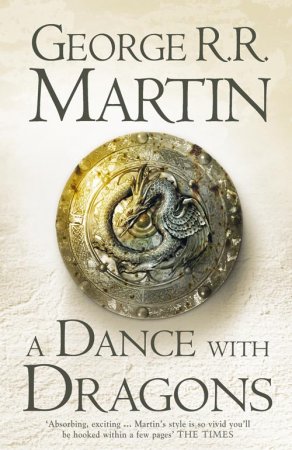 A Dance with Dragons
A Dance with Dragons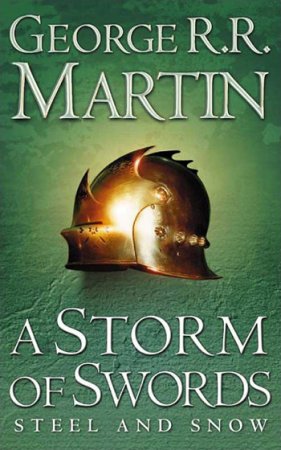 A Storm of Swords
A Storm of Swords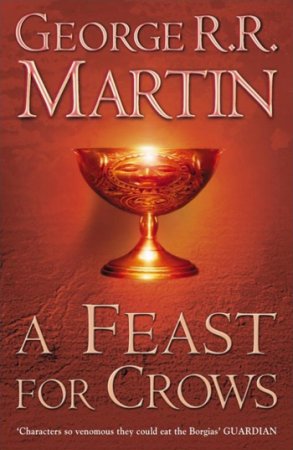 A Feast for Crows
A Feast for Crows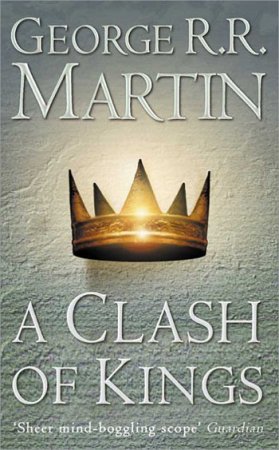 A Clash of Kings
A Clash of Kings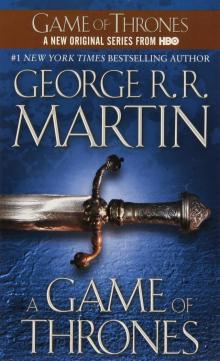 A Game of Thrones
A Game of Thrones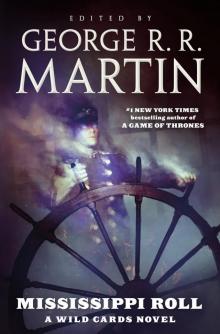 Mississippi Roll
Mississippi Roll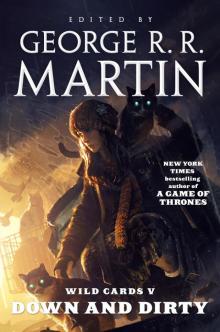 Wild Cards V: Down and Dirty
Wild Cards V: Down and Dirty Busted Flush
Busted Flush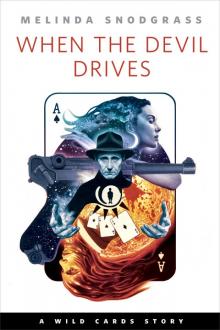 When the Devil Drives
When the Devil Drives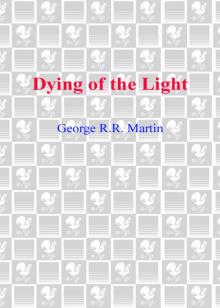 Dying of the Light
Dying of the Light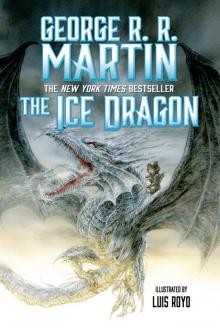 The Ice Dragon
The Ice Dragon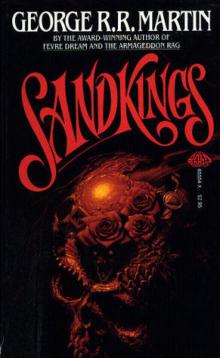 Sandkings
Sandkings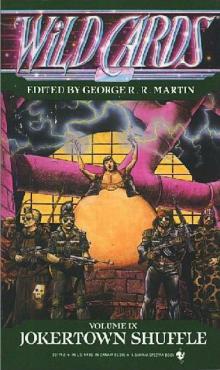 Jokertown Shuffle
Jokertown Shuffle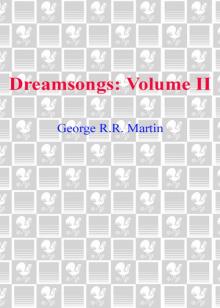 Dreamsongs. Volume II
Dreamsongs. Volume II Deuces Down
Deuces Down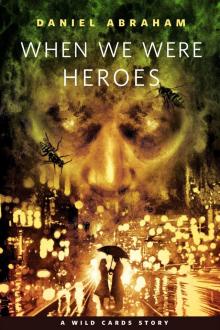 When We Were Heroes
When We Were Heroes Warriors
Warriors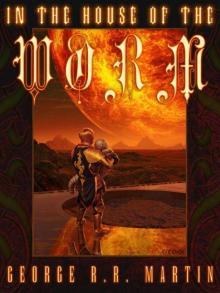 In the House of the Worm
In the House of the Worm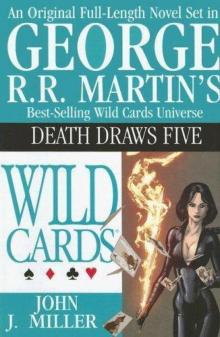 Death Draws Five
Death Draws Five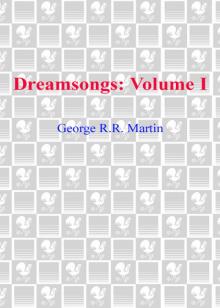 Dreamsongs. Volume I
Dreamsongs. Volume I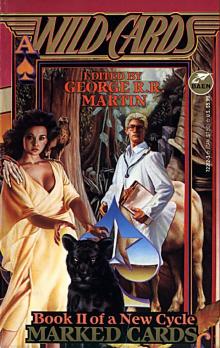 Marked Cards
Marked Cards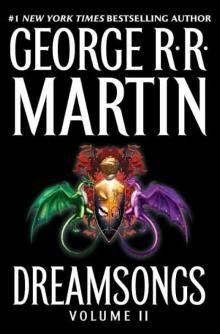 Dreamsongs
Dreamsongs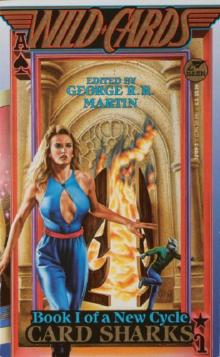 Card Sharks
Card Sharks Dangerous Women
Dangerous Women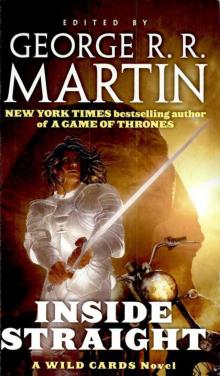 Inside Straight
Inside Straight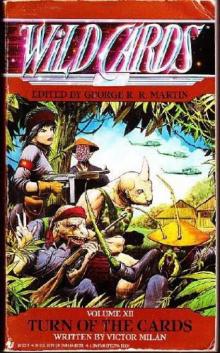 Turn of the Cards
Turn of the Cards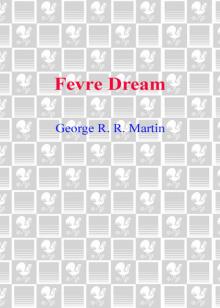 Fevre Dream
Fevre Dream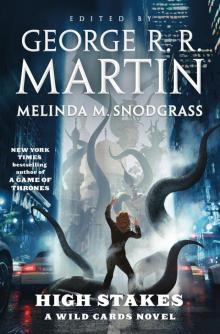 High Stakes: A Wild Cards Novel
High Stakes: A Wild Cards Novel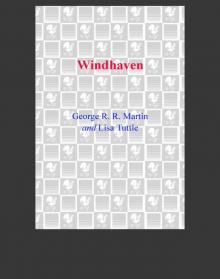 Windhaven
Windhaven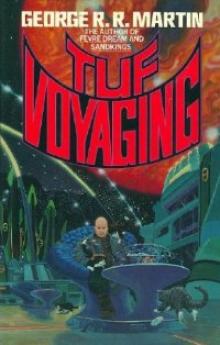 Tuf Voyaging
Tuf Voyaging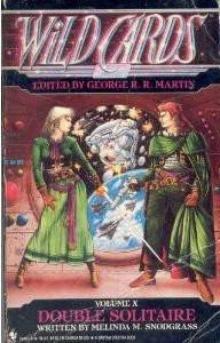 Double Solitaire
Double Solitaire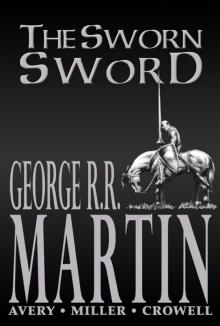 The Sworn Sword
The Sworn Sword Low Chicago
Low Chicago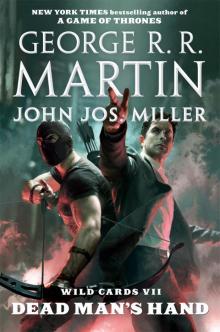 Dead Man's Hand
Dead Man's Hand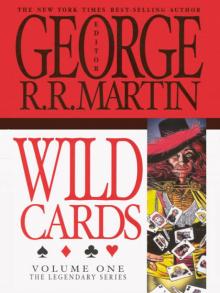 Wild Cards
Wild Cards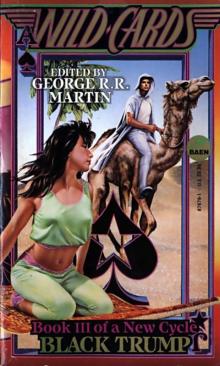 Black Trump
Black Trump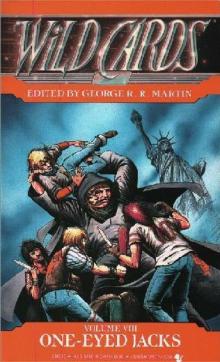 One Eyed Jacks
One Eyed Jacks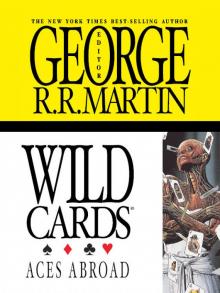 Wild Cards: Aces Abroad
Wild Cards: Aces Abroad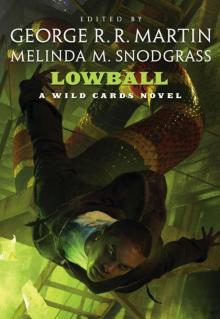 Lowball: A Wild Cards Novel
Lowball: A Wild Cards Novel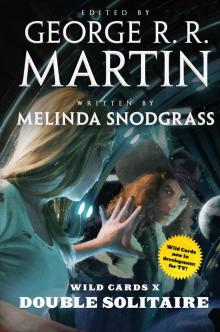 Double Solitaire (2019 Edition)
Double Solitaire (2019 Edition)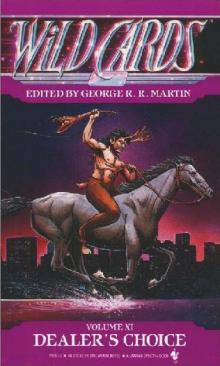 Dealer's Choice
Dealer's Choice Ace in the Hole
Ace in the Hole A Song for Lya: And Other Stories
A Song for Lya: And Other Stories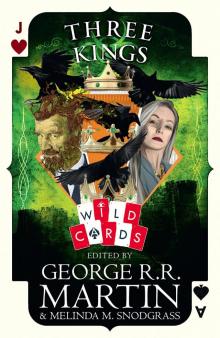 Three Kings
Three Kings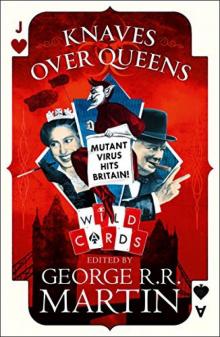 Knaves Over Queens
Knaves Over Queens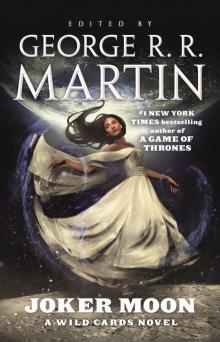 Joker Moon
Joker Moon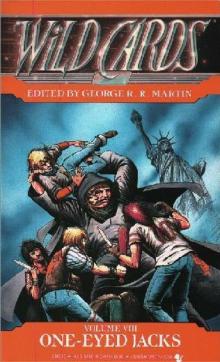 One Eyed Jacks wc-8
One Eyed Jacks wc-8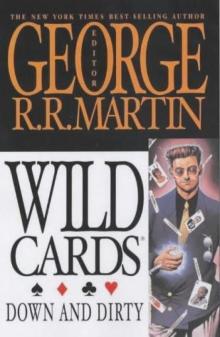 Down And Dirty wc-5
Down And Dirty wc-5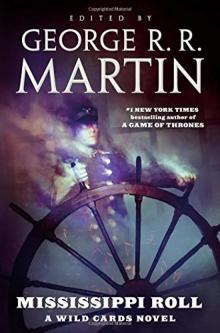 Mississippi Roll_A Wild Cards Novel
Mississippi Roll_A Wild Cards Novel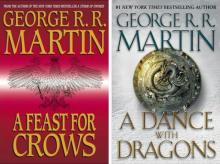 A Feast for Dragons
A Feast for Dragons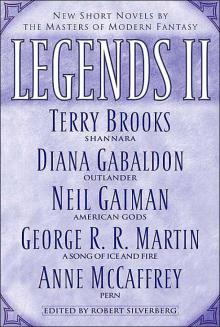 The Sworn Sword ttodae-2
The Sworn Sword ttodae-2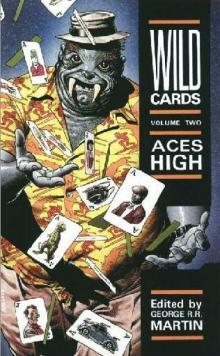 Aces High wc-2
Aces High wc-2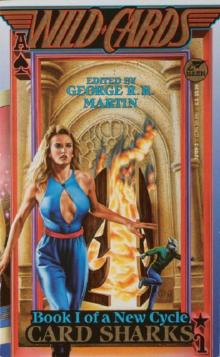 Wild Cards 13 : Card Sharks
Wild Cards 13 : Card Sharks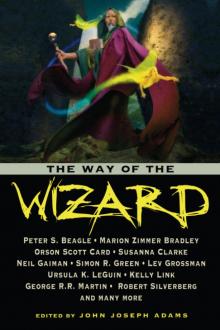 Way of the Wizard
Way of the Wizard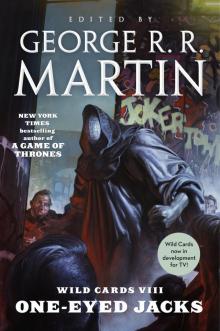 Wild Cards VIII: One-Eyed Jacks
Wild Cards VIII: One-Eyed Jacks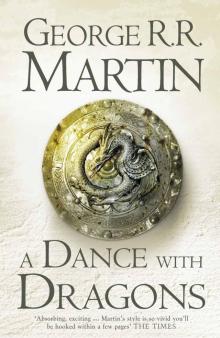 A Dance With Dragons: Book 5 of A Song of Ice and Fire (Song of Ice & Fire 5)
A Dance With Dragons: Book 5 of A Song of Ice and Fire (Song of Ice & Fire 5) The Princess and The Queen, Or, The Blacks and The Greens (a song of ice and fire)
The Princess and The Queen, Or, The Blacks and The Greens (a song of ice and fire)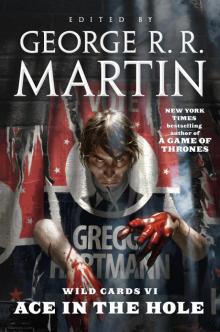 Wild Cards VI--Ace in the Hole
Wild Cards VI--Ace in the Hole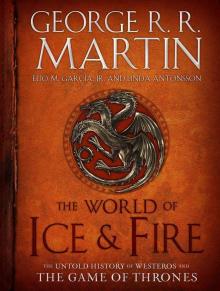 The World of Ice & Fire: The Untold History of Westeros and the Game of Thrones (A Song of Ice and Fire)
The World of Ice & Fire: The Untold History of Westeros and the Game of Thrones (A Song of Ice and Fire)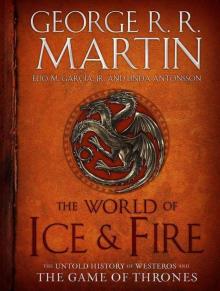 The World of Ice & Fire: The Untold History of Westeros and the Game of Thrones
The World of Ice & Fire: The Untold History of Westeros and the Game of Thrones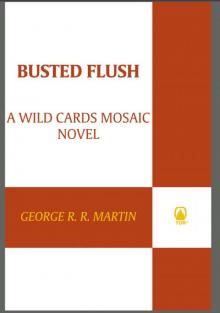 Busted Flush wc-19
Busted Flush wc-19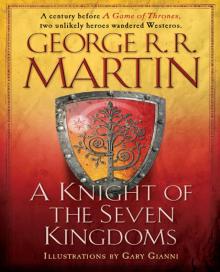 A Knight of the Seven Kingdoms
A Knight of the Seven Kingdoms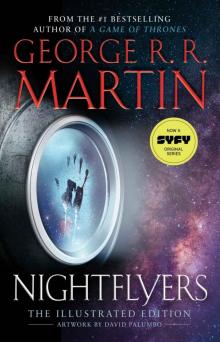 Nightflyers: The Illustrated Edition
Nightflyers: The Illustrated Edition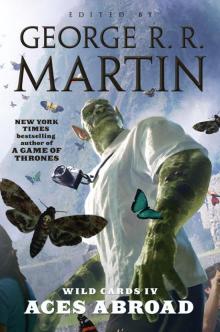 Wild Cards IV
Wild Cards IV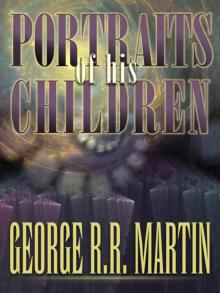 Portraits of His Children
Portraits of His Children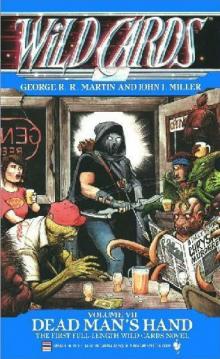 Dead Mans Hand wc-7
Dead Mans Hand wc-7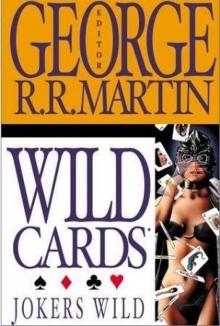 Jokers Wild wc-3
Jokers Wild wc-3 The Lonely Songs of Laren Dorr
The Lonely Songs of Laren Dorr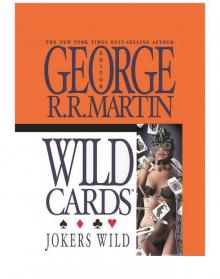 Wild Cards III: Jokers Wild
Wild Cards III: Jokers Wild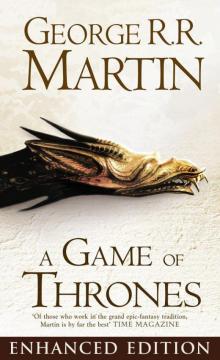 A Game of Thrones Enhanced Edition
A Game of Thrones Enhanced Edition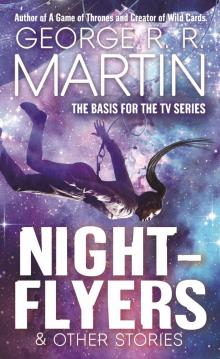 Nightflyers & Other Stories
Nightflyers & Other Stories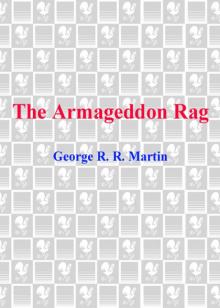 Armageddon Rag
Armageddon Rag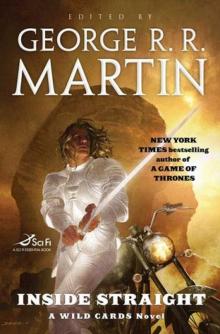 Wild Cards: Inside Straight
Wild Cards: Inside Straight A Song for Lya
A Song for Lya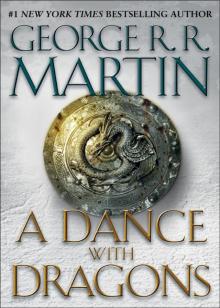 A Dance with Dragons: A Song of Ice and Fire: Book Five
A Dance with Dragons: A Song of Ice and Fire: Book Five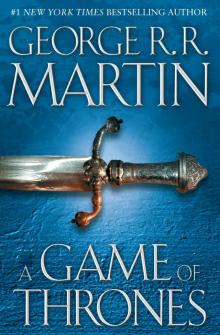 Song of Fire & Ice 01 - A Game of Thrones
Song of Fire & Ice 01 - A Game of Thrones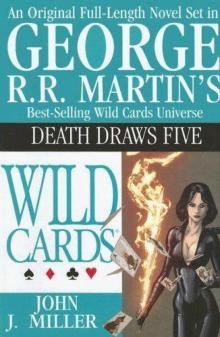 Death Draws Five wc-17
Death Draws Five wc-17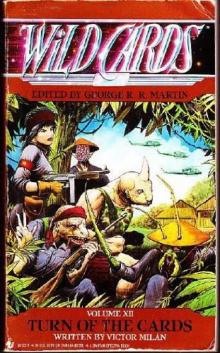 Turn of the Cards w-12
Turn of the Cards w-12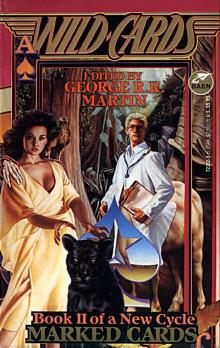 Wild Cards 14 - Marked Cards
Wild Cards 14 - Marked Cards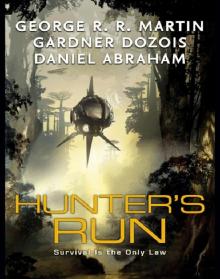 Hunter's Run
Hunter's Run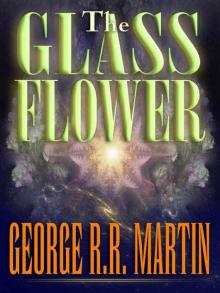 The Glass Flower
The Glass Flower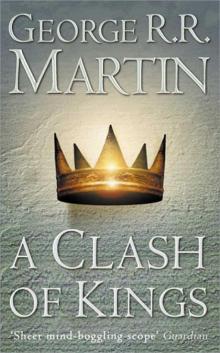 A Clash of Kings asoiaf-2
A Clash of Kings asoiaf-2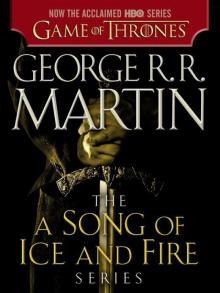 A Game of Thrones 5-Book Bundle: A Song of Ice and Fire Series: A Game of Thrones, A Clash of Kings, A Storm of Swords, A Feast for Crows, and A Dance with Dragons (Song of Ice & Fire)
A Game of Thrones 5-Book Bundle: A Song of Ice and Fire Series: A Game of Thrones, A Clash of Kings, A Storm of Swords, A Feast for Crows, and A Dance with Dragons (Song of Ice & Fire)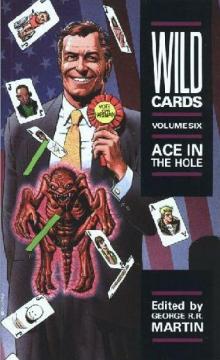 Ace In The Hole wc-6
Ace In The Hole wc-6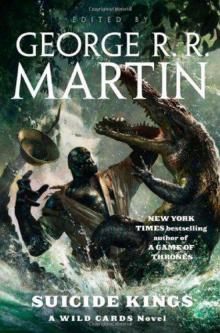 Suicide Kings wc-20
Suicide Kings wc-20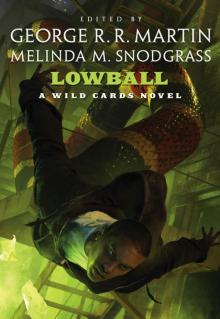 Lowball
Lowball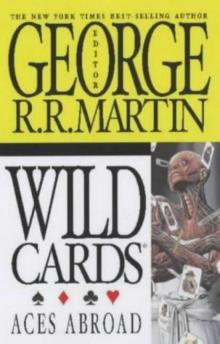 Aces Abroad wc-4
Aces Abroad wc-4 George R. R. Martin's a Game of Thrones 4-Book Bundle
George R. R. Martin's a Game of Thrones 4-Book Bundle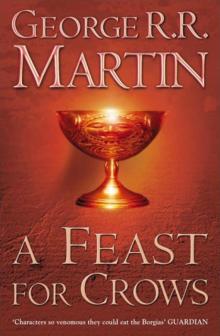 A Feast for Crows asoiaf-4
A Feast for Crows asoiaf-4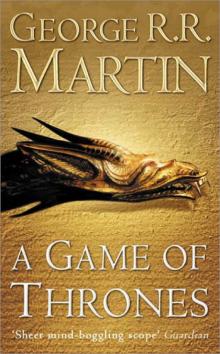 A Game of Thrones asoiaf-1
A Game of Thrones asoiaf-1 The Mystery Knight ttodae-3
The Mystery Knight ttodae-3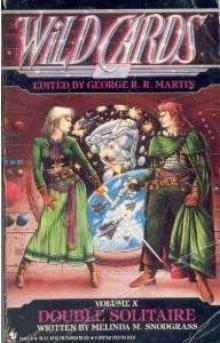 Double Solitaire w-10
Double Solitaire w-10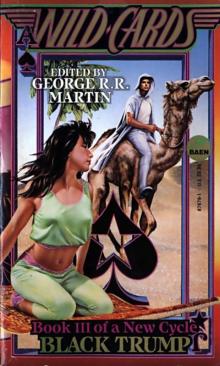 Wild Cards 15 - Black Trump
Wild Cards 15 - Black Trump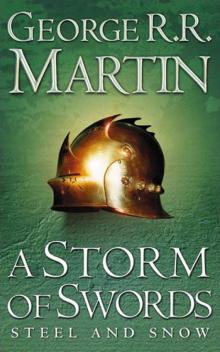 A Storm of Swords asoiaf-3
A Storm of Swords asoiaf-3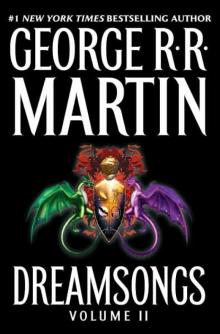 The Hedge Knight ttodae-1
The Hedge Knight ttodae-1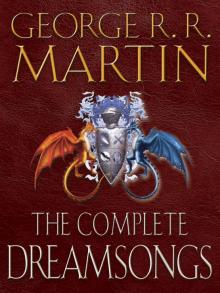 Dreamsongs 2-Book Bundle
Dreamsongs 2-Book Bundle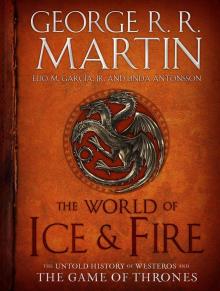 The World of Ice & Fire
The World of Ice & Fire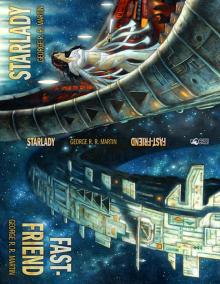 Starlady & Fast-Friend
Starlady & Fast-Friend Old Mars
Old Mars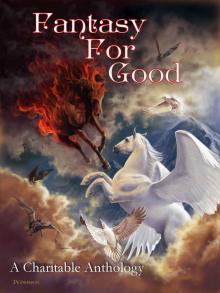 Fantasy For Good: A Charitable Anthology
Fantasy For Good: A Charitable Anthology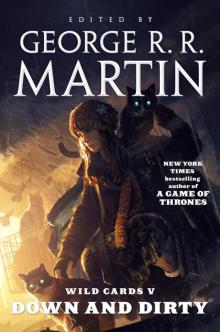 Wild Cards V
Wild Cards V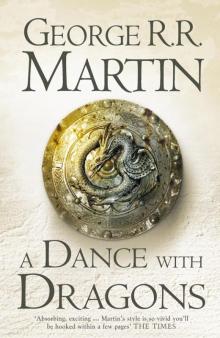 A Dance with Dragons asoiaf-5
A Dance with Dragons asoiaf-5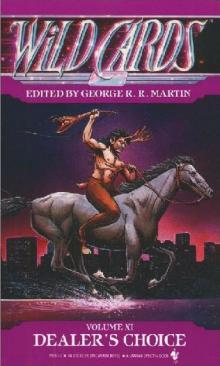 Dealer's Choice w-11
Dealer's Choice w-11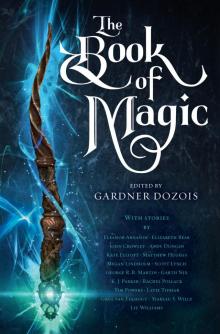 The Book of Magic
The Book of Magic A Game of Thrones 4-Book Bundle
A Game of Thrones 4-Book Bundle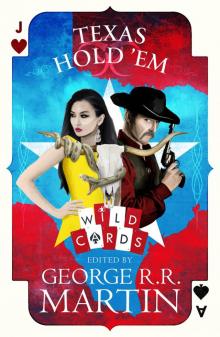 Texas Hold 'Em
Texas Hold 'Em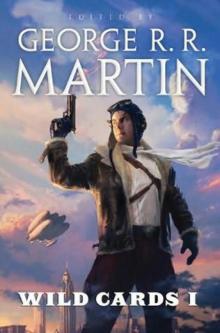 Wildcards wc-1
Wildcards wc-1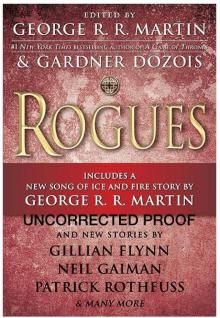 Rogues
Rogues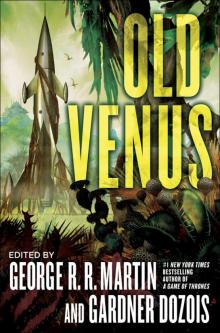 Old Venus
Old Venus